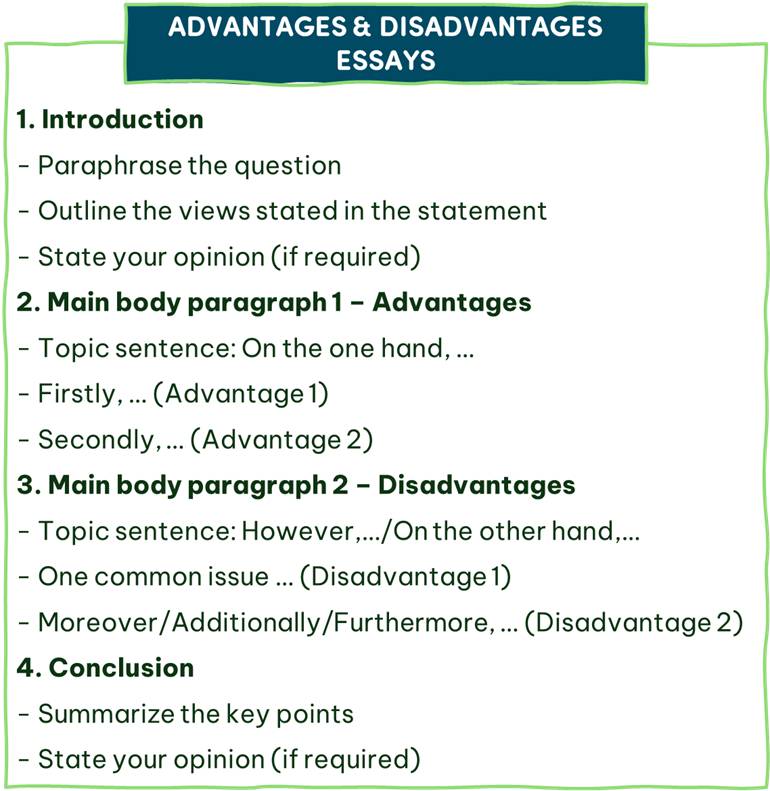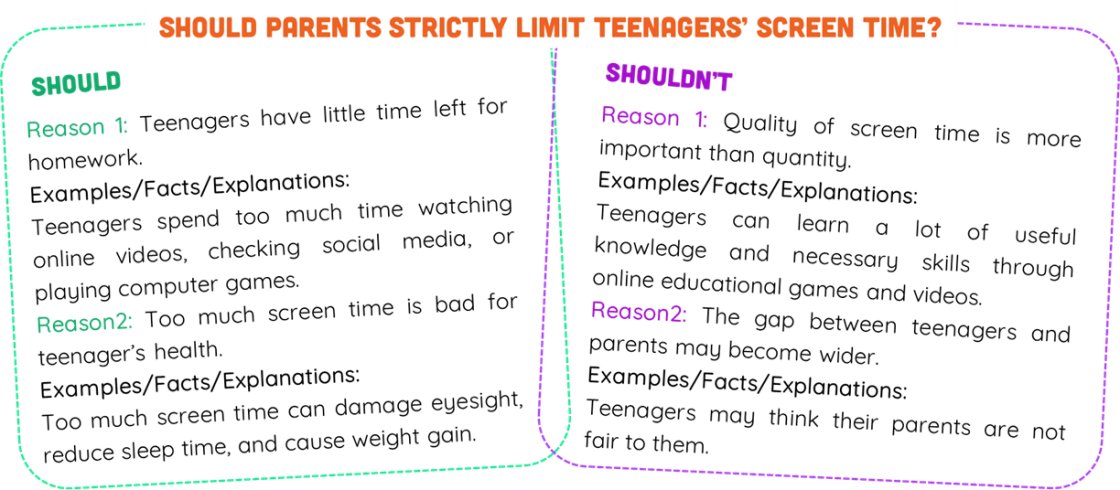
Hãy nhập câu hỏi của bạn vào đây, nếu là tài khoản VIP, bạn sẽ được ưu tiên trả lời.



Dear Anna,
I'm glad that you like the cooking book. It has many interesting recipes in there, you should try one. By the way, Sunday sounds great, I'll come over at 4 p.m.
See you soon,
Linda
Hi Anna,
I'm glad that you're finding my book on healthy cooking helpful.
I am delighted to join you at your home this Sunday to find out some recipes from the book with you.
Unfortunately, my mango trees has not produced any mangoes at the time, but by the way I will buy some fresh mangoes from the market on the way to your place for one of the dishes.
Looking forward to seeing you soon.
Warm regards.
Linda.


Living in a smart city brings many benefits and disadvantages. In this article, I will present some pros and cons of living in a smart city.
The first advantage of living in a smart city is convenience. Information and communications technology is integrated into urban systems, helping to provide public services more effectively. For example, through mobile applications, people can easily search for information about transportation, destinations, and entertainment activities. Furthermore, the smart traffic system helps reduce congestion and save travel time.
Another advantage of smart cities is energy saving and environmental protection. Advanced technologies are applied to manage and use resources effectively. For example, automatic lighting and temperature regulation in buildings help save energy. In addition, the use of smart public transport and self-driving cars helps reduce polluting emissions.
However, living in a smart city also has disadvantages. One of them is the issue of information security. With the widespread use of information technology, the risk of personal information insecurity and privacy violations increases. This requires strong security measures to ensure the safety of people's personal data.
Another drawback of smart cities is their dependence on technology. If technology systems fail or are attacked, public services could be disrupted. This poses challenges for maintaining stability and ensuring security of smart cities.
In short, living in a smart city brings many benefits such as convenience and energy savings. However, it is also necessary to pay attention to information security issues and dependence on technology. To make the most of the advantages and minimize the disadvantages, smart investment and management from city managers is needed.

A. mansion (khu nhà lớn)
B. thatched cottage (nhà tranh lợp mái)
C. semi-detached house (nhà liền kề)
D. flat (căn hộ)
A: What type of home do you live in?
(Bạn sống trong loại nhà nào?)
B: I live in a detached house in district 10.
(Tôi sống trong một căn nhà biệt lập ở quận 10.)

a) countable nouns: document, gadget
(danh từ đếm được: tài liệu, tiện ích)
b) uncountable nouns: habit, health, information, money, music, software, website, homework
(danh từ không đếm được: thói quen, sức khỏe, thông tin, tiền bạc, âm nhạc, phần mềm, trang web, bài tập về nhà)

In today's digital age, screens have become an integral part of our daily lives. However, excessive screen time can have some negative impacts on our health, particularly for teenagers. In my opinion, it is important to limit teenagers' screen time. Firstly, prolonged exposure to screens has been linked to a variety of health problems such as obesity, poor eyesight, and insomnia. Spending excessive amounts of time in front of screens can also cause headaches, neck and back pain, and postural problems. Limiting teenagers' screen time can help ensure that they get enough physical activity, fresh air, and quality sleep that their growing bodies need. Secondly, excessive screen time can negatively impact teenagers' mental health. It can lead to feelings of isolation, anxiety, depression, and even addiction. Social media platforms, for instance, can create unrealistic expectations for youth, leaving many feeling inferior and depressed. To combat this, teenagers should learn to moderate their Internet and screen usage, and pursue more meaningful and fulfilling activities. Thirdly, screen time can affect teenagers' cognitive development. The brain of a teenager is still developing, and research shows that excessive screen time can impede brain development that affects cognitive skills such as attention span, memory, and problem solving. In contrast, spending more time reading, interacting face-to-face with peers, and engaging in outdoor activities can help teenagers build positive cognitive skills. In conclusion, while screens are useful tools, they should be used in moderation, especially for teenagers. Limiting their screen time can have positive effects on their physical, mental, and emotional well-being. Parents and guardians should encourage teenagers to find other activities that they enjoy besides screens such as sports, arts, traveling, and socializing with peers. By doing so, teenagers can strike a healthy balance between screen time and other activities, leading to a healthier and happier life.

December 15th, 2021
Dear Mr Browm
I am writing to ask you about the life skills coureses you advertised in the youth Magazine.
I am now in Grade 11 and have such a lot of work to do that I don't have time to finish all
Could you advise me how I can use my time wiely and properly ? I would also like to know which course is suiable for me and how much the tuition fee will be . I would he grateful if you could give me more information about the course duration, the trainer in charge, the starting date and the certificate I will receri pfter finishing the course.
I hope that you answer will help me make the right choise I'm looking forward to hearing from for soom.
Yours sincerely,
vu thi hong ngoc
July 17, 2020
Dear Miss Brown,
I write to ask you about the life skills courses you've advertised in Youth Magazine.
I'm currently in 9th grade and I'm always under deadline pressure because I don't think I can handle all my homework.
Can you give me some advice on how to arrange well for my assignments at school? I also want to know which course is right for me and how much tuition will be. I would be grateful if you could give me more information about course time, coach in charge, start date and certificate I will receive after the end of the course.
I hope your answer will help me make the right choice. I look forward to hearing from you soon.
Yours honestly,
Supreme Emperor

My best friend, Hoa, decided to drop out of school and start working to help her parents.
(Bạn thân của tôi, Hoa , quyết định bỏ học và bắt đầu làm việc để giúp bố mẹ.)
In my class, she was one of the best students.
(Trong lớp của tôi, cô ấy là một trong những học sinh giỏi nhất.)
She not only always got high marks on exams but also was a good friend because of her kindness.
(Cô ấy không chỉ luôn đạt điểm cao trong kỳ thi mà còn là người bạn tốt vì lòng tốt của cô ấy.)
She helped us with our homework, gave us encouragement to overcome our troubles.
(Cô ấy giúp chúng ta làm bài tập, cho chúng ta sự khuyến khích vượt qua những khó khăn.)
Hoa’s family is very poor. Both of her parents are farmers.
(Gia đình Hoa rất nghèo. Cả hai bố mẹ đều là nông dân.)
Although they work hard in the fields all year round, they can’t earn enough money to cover their everyday needs.
(Mặc dù họ làm việc chăm chỉ trong suốt cả năm, họ vẫn không thể kiếm đủ tiền để trang trải cho nhu cầu hàng ngày của họ.)
Of course, they can’t support Hoa to go to school.
(Tất nhiên, không không thể hỗ trợ Hoa đi học.)
She loves her family so much and she doesn’t want to be a burden on her parents, so she dropped out of school and started working.
(Cô ấy yêu gia đình mình rất nhiều và cô ấy không muốn trở thành gánh nặng cho bố mẹ, nên cô ấy bỏ học và bắt đầu làm việc.)
Since she left school, my class has missed her so much and all of us wish we could do something to help her to continue her education.
(Kể từ khi cô ấy rời trường, lớp tôi nhớ cô ấy rất nhiều và tất cả chúng tôi đều ước chúng tôi có thể làm gì đó để giúp cô ấy tiếp tục học tập.)









.png)


.png)
